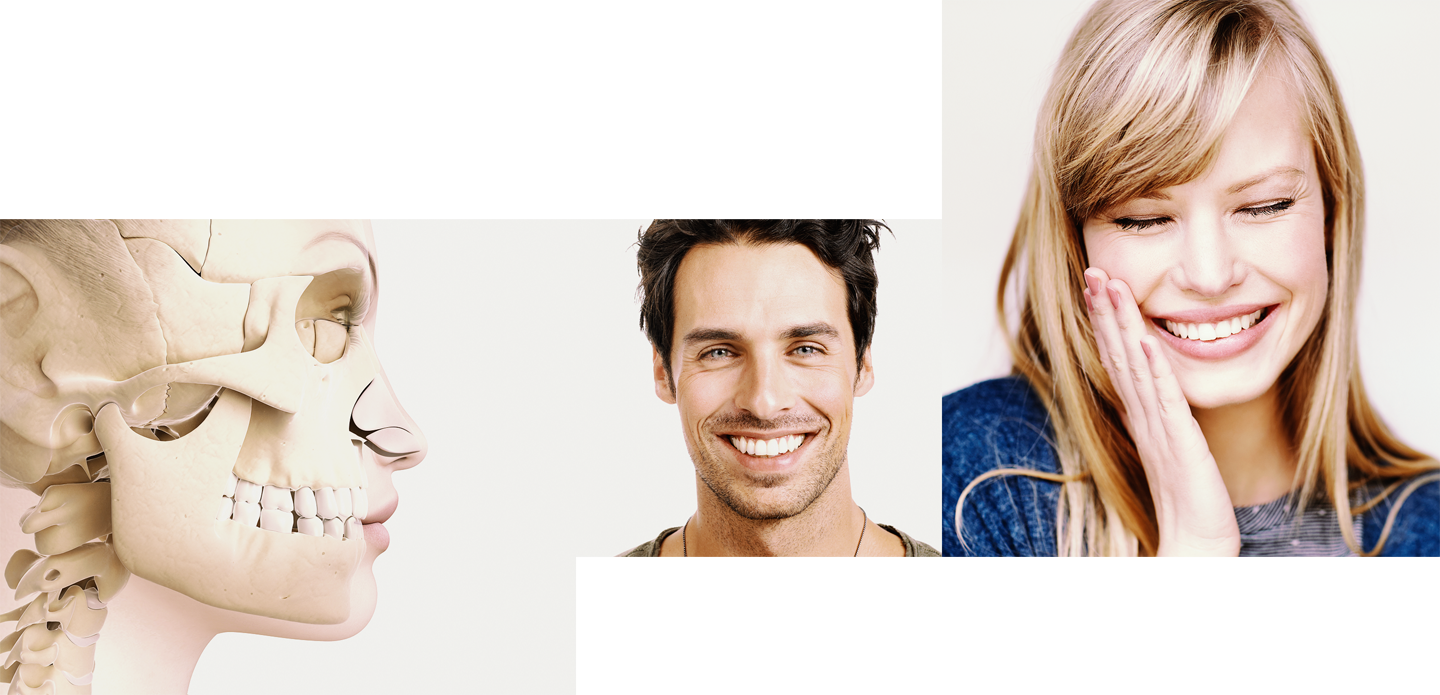
Dysfunctions can arise due to the inappropriate strain of our mastication muscles. The symptoms of these dysfunctions include ear, tooth, jaw or head/facial pain.
Many craniomandibular dysfunctions (CMD), and the resulting complaints, are most often due to biomechanic or muscular dysfunctions which are not only triggered in our masticatory system. However, if the complaints are caused by something other than the masticatory apparatus, the diagnostic options are limited, as it is rarely possible to perform a full physical examination.
An example of “rising” problems such as these is cervical pain and/or rotational misalignment of the first cervical vertebra (atlas), as well as changes in the patient’s posture such as scoliosis.
If triggered by biomechanical or muscular dysfunctions, it is worth treating CMD with manual therapy or biomechanical corrections - without any side effects. This requires interdisciplinary and multidisciplinary cooperation between dentists and physiotherapists.
Manual structural or functional analysis (FAL) is a recognized method used to analyze the chewing function, as well as the muscles, disc joints and ligaments, etc., involved. In addition to manual functional analysis, medical history, postural findings and manual tests of the cervical spine help to identify diseases.
The appointment for your results will last approx. 45 minutes. After this, an extensive written report will be created. This examination and the findings are private services. The costs for a findings appointment is €190 and approx. €60 for a treatment appointment. The costs for these examinations may not be covered (statutory health insurance) or not fully covered (private health insurance).

The jaw joints play a special role. The jaw is the only joint in the body that is able to move along all three axes and laterally. Furthermore, it is the only joint that works as a pair. The joints are hinged on the right and left side of your lower jaw. When one of the joints moves, the other is forced to do so as well. This intricacy means that the jaw is particularly prone to failure. A misaligned jaw, or set of teeth, or an incorrect dental prosthesis can lead to an unbalanced bite and improper strain of the jaw joints.

can be explained by the connection between the facial and masticatory muscles, including the hyoid and neck muscles. The individual components create a complex interrelated system. Problems in one area always influence the entire system and can even lead to a chain reaction. This means that jaw or tooth deformities can lead to frequent neck or shoulder pain. In turn, these can cause serious tension headaches.

Due to the close anatomical relationship between the jaw joints and the entotic and tympanic structures, dysgnathia can cause tinnitus. Similarly, people with severe dysgnathia occasionally complain of hearing impairment, sudden loss of hearing or dizziness (vertigo).

“You should chew your food properly.” As an old Chinese proverb states: every bite should be chewed 36 times. Chewing your food thoroughly ensures the flow of saliva and the optimal preparation of food for digestion in the stomach and intestines. However, this is often not possible when it comes to jaw or tooth deformity. The result can often be stomach acidity and digestive problems.
Dysfunctions of the jaw joints can manifest themselves as cracking and/or rubbing noises, e.g. due to painful or painless disc derangement (cartilage in the jaw joint). However, headaches, jaw and facial pain can also have other causes. A manual functional analysis can potentially locate or exclude the cause or a partial problem of these complaints. But you should also consult a specialist such as an orthopedist or a neurologist if these symptoms occur.
